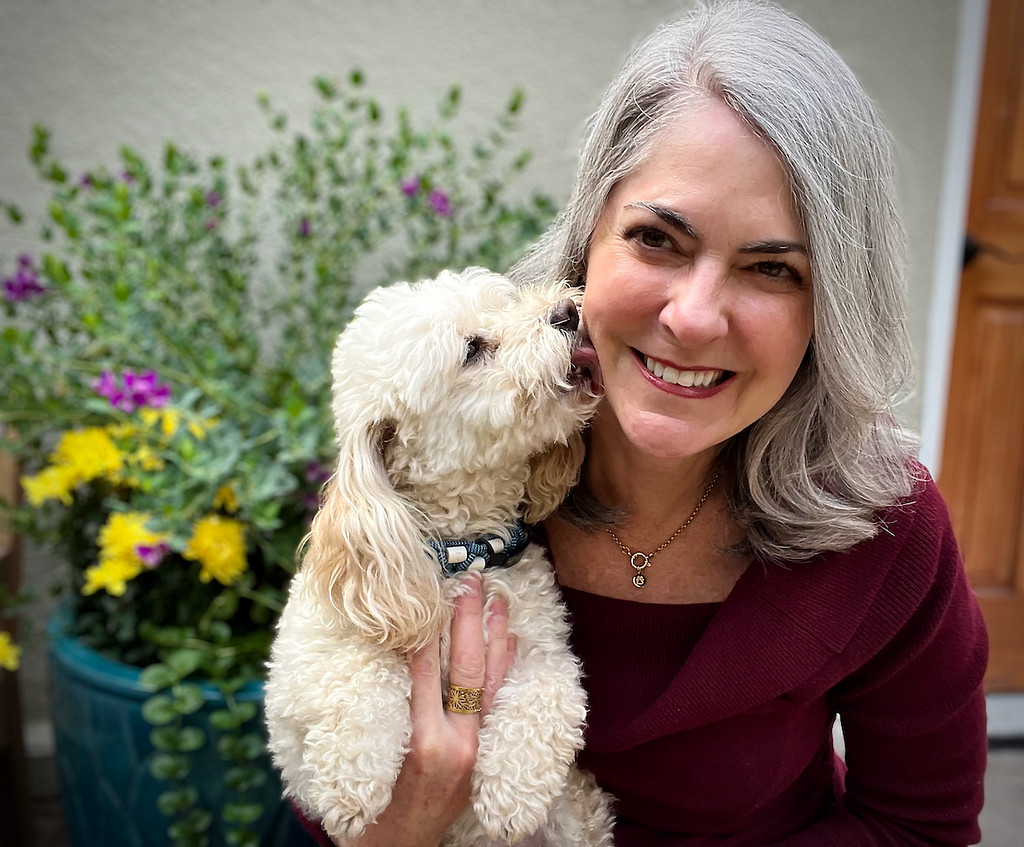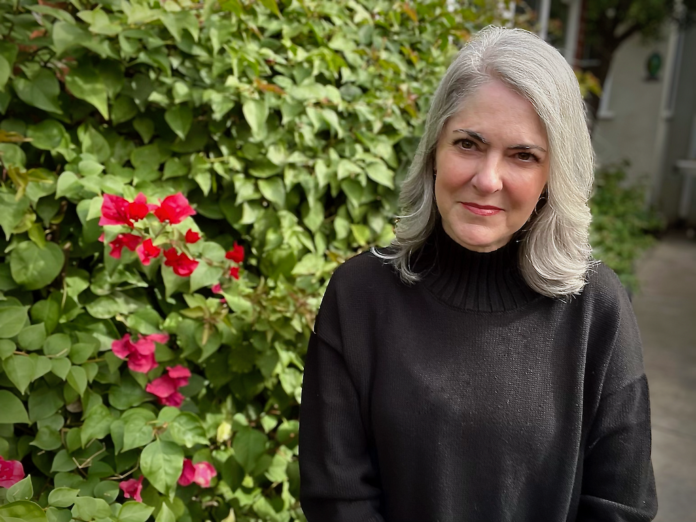Marilyn Cross Coleman Of Shameless Mama Wellness On Navigating the Challenges of Infertility and IVF
An Interview With Lucinda Koza
A self-care plan and strong support system: Have a plan in place to ensure you are taking care of yourself. Start a self-care plan as soon as you can to ensure it is well in place when you start the process. Any self-care plan should include a list of trusted friends and family who will provide support throughout the process.
Infertility and the journey through IVF are challenges that many individuals and couples face, often accompanied by emotional, physical, and financial stress. Despite advancements in reproductive technology, the process can be isolating and fraught with uncertainty. How can we better support those navigating infertility and IVF, and what strategies can help manage the various challenges along the way? As a part of this series, I had the pleasure of interviewing Marilyn Cross Coleman, LCSW, PMH-C at Shameless Mama Wellness.
Marilyn Cross Coleman is a Licensed Clinical Social Worker and Perinatal Mental Health Treatment Specialist. She is a Postpartum Therapist in California and the founder of Shameless Mama Wellness, a private psychotherapy practice dedicated to guiding women on their reproductive journeys. Marilyn specializes in postpartum therapy and reproductive trauma treatment. Marilyn has become a trusted voice in perinatal and maternal mental health. She uses the evidence-based trauma treatment, EMDR, to help women process reproductive trauma, including birth trauma and trauma associated with infertility.
Thank you so much for joining us in this interview series! Before we dive in, our readers would love to “get to know you” better. How did you get involved in this field?
Thank you for having me. I have been a therapist for over 30 years. I started treating postpartum women about 15 years ago and felt deeply connected to the population. I decided to specialize in Perinatal Mental Health and birth trauma after a significant personal birth trauma and subsequent postpartum depression. My personal and professional goal has since become to do what I can to help remove shame from the maternal experience. It’s an emotion that many new mothers experience and are not prepared to feel so profoundly.
From your experience working with individuals and couples navigating infertility and IVF, what are some of the most common emotional challenges they face, and how can healthcare providers best support them in managing these emotions?
Dealing with infertility and undergoing IVF can be really tough emotionally. Women often feel a sense of shame and isolation during the process. Despite the prevalence of infertility, women often find themselves feeling alone when confronted with it. They often feel betrayed by their bodies, and this can trigger other unresolved issues with body image. The fear of judgment from friends and family can prevent women from opening up about their struggles, and this cuts them off from potential sources of support. This fear may reflect their struggles with self-worth as a result of their fertility challenges. These suppressed feelings of shame often remain subconscious but inform their current feelings and amplify them.
It can be difficult when women see their friends and family effortlessly starting families. Social media posts announcing pregnancies, gender reveal parties and other baby-centered activities can stir up painful emotions and make women feel even more isolated.
Dealing with the rollercoaster of fertility treatments can also be challenging. Navigating the wildly vacillating emotions of each treatment cycle, from hope and excitement to disappointment and sadness, can be overwhelming and exhausting.
The financial cost of infertility and IVF treatment can significantly amplify the challenges couples face. The expense associated with fertility treatments can be exorbitant, and initial treatment cycles are often unsuccessful. The financial strain may cause couples to feel trapped in a cycle that is financially taxing to maintain, but they are emotionally unable to stop.
Healthcare professionals can offer support by recognizing the emotional impact of infertility and validating the feelings of women and couples. Acknowledging the emotional burden of their experience and encouraging women to seek support when needed helps normalize the emotions a woman may feel.
Mental health practitioners and medical professionals can play an important role by encouraging women to seek support from trusted friends and family and engage in therapy when appropriate. Having someone there to support and validate them can make a world of difference.
Fertility treatments often come with significant physical and hormonal impacts on the body. What strategies do you recommend to patients for managing the physical toll of IVF, and how can healthcare professionals better assist in minimizing these side effects?
Going through fertility treatments can significantly impact a woman’s body. They often involve a demanding treatment schedule with frequent hormone injections and invasive medical procedures. For women who are already struggling with the emotional component of the process, the physical challenges can significantly compound it.
I recommend for following coping strategies for women undergoing the process:
Ensure you’re getting adequate rest and provide time for your body to recover: IVF is exhausting. It may be difficult to listen to your body and honor what it needs, but it’s imperative during this process. Getting enough rest and allowing for recovery between cycles will allow the body to tolerate the demands of the treatments.
Choose restorative practices and lighter activities: Light exercise, like gentle yoga, walking or stretching can help the body to heal and help alleviate the emotional strain of the treatments.
Practice Mindfulness and Stress Reduction: Emotional stress and physical strain can compound one another. Incorporating mindfulness practices, meditation, and breathing exercises can help lessen their impact. Grounding exercises like progressive muscle relaxation can help as well.
Focus on healthy eating: Nourishing, well-balanced meals and hydration can lessen the impact of treatments on the body.
Reach out to your support system: Having trusted friends and family who are willing to learn about the process and help you through it will help considerably.
Following through with the complete process of fertility testing and treatment can be absolutely grueling for the body for what could be years. How can someone cope with constant procedures, medications, hormones?
The same coping strategies listed above can help with the long-term impact of continued IVF treatments. Rest, restorative practices, mindfulness, healthy eating and seeking support. These coping skills can help women through the duration of the process.
Financial stress is a major factor for many couples undergoing fertility treatments. How can healthcare providers and therapists address this stress proactively, and are there any resources or advice you offer to help patients navigate the financial challenges of IVF?
I think it’s important to acknowledge and normalize discussions about finances very early in the process. It’s important that healthcare providers are transparent about the costs, and they are outlined clearly.
Therapists can help women and couples by assisting them to develop open communication around the financial stress of the treatments. It can be helpful if couples can discuss expectations and budgeting and set financial limits before starting treatment.
Some clinics may offer payment plans or discounted rates. I encourage women and couples to at least ask if this is available to them. There are also some programs that offer financial assistance and grants for IVF. Clinics should have information on these programs.

Can you please share “5 Things You Need to Navigate the Challenges of Infertility and IVF”?
1 . Access to accurate up-to-date information: It’s very important to ensure you have access to current information regarding the process. Misinformation, especially if you are conducting your own internet research, can pose problems. Ask questions of your team and rely on them to provide the information you need.
2 . A trusted team of professionals: Finding the right team is essential. I advise women and families to consult with a few different clinics if possible. A good fit will help you to feel more confident and less fearful of the process.
3 . A financial plan: It’s important to know your financial limits when starting this process. Many couples discount this piece, and this can create conflict later down the road. Create an outline and stick to a plan. Knowing your financial limits before starting the process can provide structure and safety.
4 . A self-care plan and strong support system: Have a plan in place to ensure you are taking care of yourself. Start a self-care plan as soon as you can to ensure it is well in place when you start the process. Any self-care plan should include a list of trusted friends and family who will provide support throughout the process.
5 . Access to mental health support if needed: Have a plan to engage in mental health treatment services if needed. Identify appropriate service providers in advance you can access them quickly if needed.
The isolation that often accompanies infertility can be overwhelming. What role does mental health support play in the IVF journey, and what can healthcare professionals do to create a more connected and supported experience for patients going through this process?
Seeking mental health support during the IVF process is crucial. A mental health provider can provide women with the coping strategies they need to process the emotional challenges and sense of isolation they may face. The emotional stress can be profound, and this can lead women to feel disconnected from friends, family, partners and even themselves.
Mental health providers can help normalize and process these feelings. This can often help women regain their sense of control in a time that can feel unpredictable.
They can help women strengthen their emotional resilience, develop effective coping strategies, improve communication skills and help them ensure their support system is strong.
Mental health professionals can additionally screen for symptoms of depression and anxiety regularly and ensure women receive appropriate care for these issues if and when needed.
Wonderful. We are nearly done. Is there a person in the world, or in the US, with whom you would like to have a private breakfast or lunch, and why? He or she might just see this, especially if we tag them. :-)?
I feel that the world needs to feel grounded right now. I cannot think of a more grounding woman than Dolly Parton. I grew up in Texas listening to her music, and her accent is very similar to my mother’s. I think I would find a private meal with Dolly a great comfort right now.
If you could start a movement that would bring the most amount of good to the most amount of people, what would that be? You never know what your idea can trigger. 🙂
I would love to see a movement to effectively show young women and girls how to identify and amplify their unique voices. Again, I think the world needs this right now.
How can our readers follow your work online?
They can follow my work at www.shamelessmamawellness.com.
Thank you so much for joining us. This was very inspirational.
Thank you so much.
About the Interviewer: After becoming her father’s sole caregiver at a young age, Lucinda Koza founded I-Ally, a community-based app that provides access to services and support for millennial family caregivers. Mrs. Koza has had essays published in Thought Catalog, Medium Women, Caregiving.com and Hackernoon.com. She was featured in ‘Founded by Women: Inspiration and Advice from over 100 Female Founders’ by Sydney Horton. A filmmaker, Mrs. Koza premiered short film ‘Laura Point’ at the 2015 Cannes Film Festival and recently co-directed ‘Caregivers: A Story About Them’ with Egyptian filmmaker Roshdy Ahmed. Her most notable achievement, however, has been becoming a mother to fraternal twins in 2023. Reach out to Lucinda via social media or directly by email: [email protected].
Marilyn Cross Coleman Of Shameless Mama Wellness On Navigating the Challenges of Infertility and… was originally published in Authority Magazine on Medium, where people are continuing the conversation by highlighting and responding to this story.


